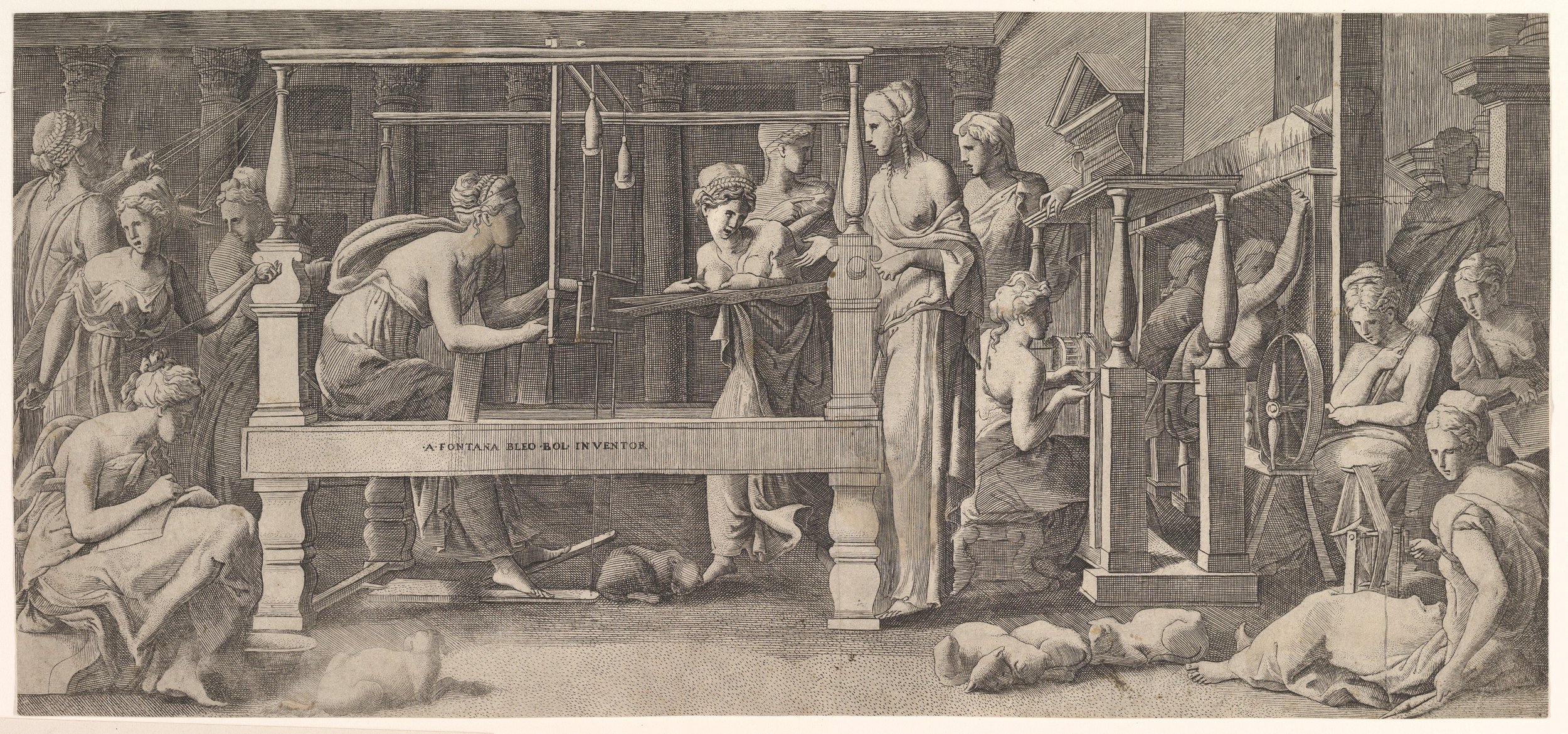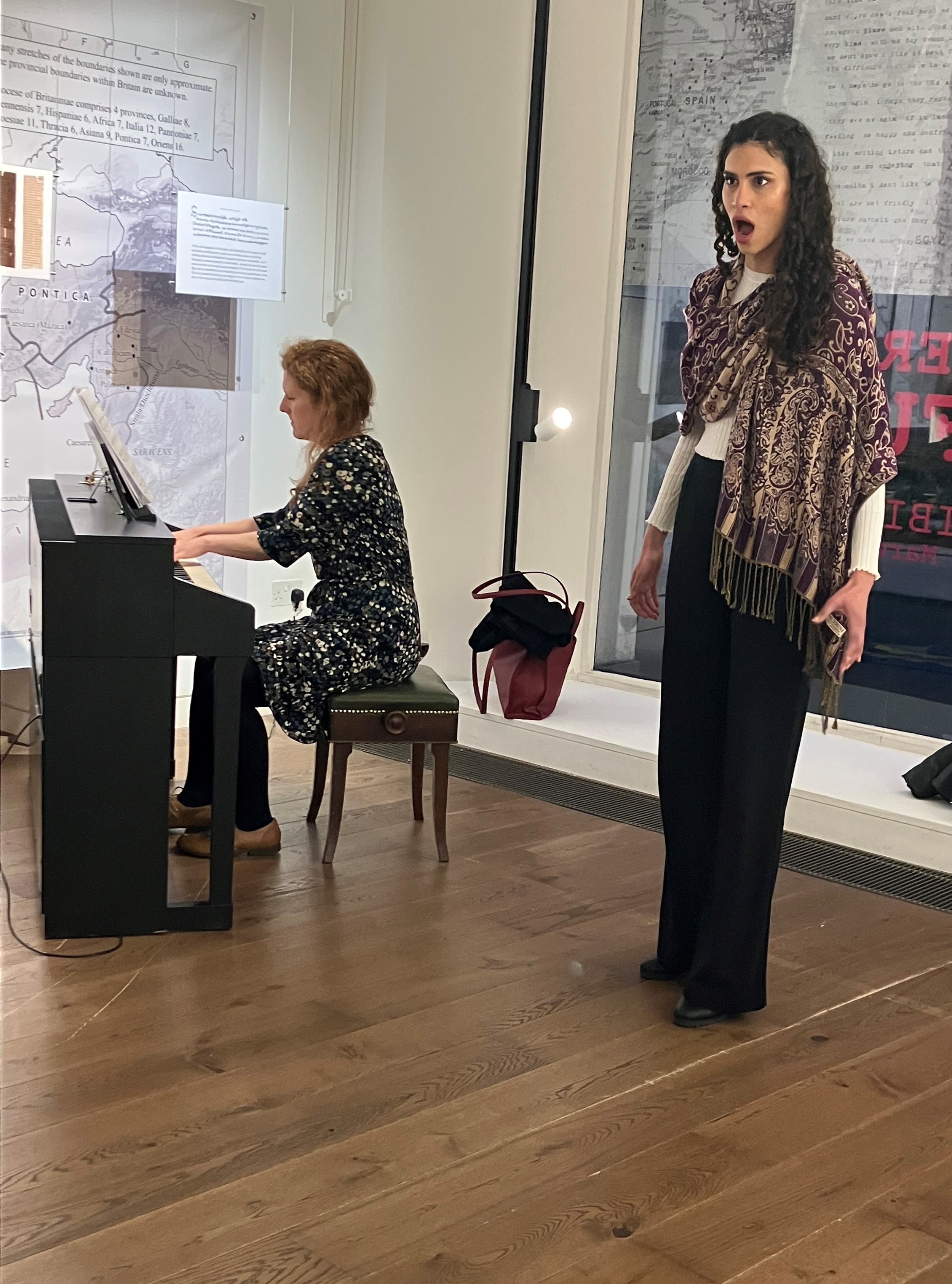
Penelope’s Web is a modern opera project that musically amplifies the unheard voices of ancient Greek myth.
Penelope’s Web involves a collaborative network of creative artists and scholars from King’s College London, the University of Oxford, Guildhall School of Music and Drama, Princeton University, New York University, Durham University, and beyond.
Using a combination of creative translation, music, and drama practice we aim to answer the following questions:
How can contemporary music rehearsal and performance transform our understanding of a classical myth?
How can practitioners engage creatively in the exploration and embodiment of an ancient story?
What might this teach us about the function of dramatic music in ancient Greece and Rome?
What might this teach us about ourselves and the modern world we inhabit?
They had lovely voices, all of them, and they had been taught how to use them…They were my most trusted eyes and ears in the palace, and it was they who helped me to pick away at my weaving… We told stories as we worked away at our task of destruction; we shared riddles; we made jokes… We were almost like sisters…
— M. Atwood, The Penelopiad, 2005
The mythical queen of Bronze Age Ithaka, Penelope, has for three millennia been the great exemplar of feminine fidelity, endurance, and cunning. The earliest telling of her story comes in Homer’s ancient Greek epic poem, the Odyssey. The poem tells of the hero Odysseus and his exploits, and it also describes how Odysseus’ wife, Penelope, must wait in Ithaka for twenty years while her husband fights in the Trojan War then slowly makes his way back to her. During that time Penelope and the most vulnerable of her enslaved palace workers have to outwit the dozens of suitors who have arrived to usurp the position of Penelope’s missing husband.
In 2005 Margaret Atwood wrote The Penelopiad, a novella that reimagines Homer’s Odyssey from the female perspective. The novella explores the emotions and motivations of Penelope, and also exposes the suffering of the enslaved women who were abused and murdered in Odysseus’ palace. All Atwood’s characters are struggling to make their voices heard after death, from the ancient Greek Underworld. Their disembodied shape-shifting evokes vivid soundscapes, including nursery rhymes, sea shanties, lullabies, courtroom speeches, and tape recordings. The novella implicitly invites a musical telling of the women’s stories.
Penelope’s Web takes up Atwood’s challenge! The composer Cheryl Frances-Hoad and librettist Jeanne Pansard-Besson have initiated an exploration into how Penelope and her enslaved maids’ story should be told. Their creative work is informed by a close collaboration with professional and student musicians, school pupils, and an academic team of classicists, musicologists, and scholars of modern literature. This diverse group of amateur, professional, and scholarly participants reflects the varied traditions of ancient and modern musicianship, and the symbiosis of music-making and myth-making in the ancient and modern worlds.
Practice-based workshops are built into the weaving of Penelope’s Web. As Frances-Hoad and Pansard-Besson write sections of the opera, part-inspired by Atwood’s novella and part-composing Penelope’s story anew, their work is rehearsed, embodied, discussed and developed by project participants. Singers from the chorus play the role of Penelope, and Penelope joins the chorus. Participants narrate parts of the story, create back stories and spin-off ideas, produce complementary artwork and fiction, and develop group song, recitation, and movement.
The goal is to compose an authentic sonic expression of a story about intersecting female identities over time and across cultures. It invites scholars, musicians, and school students to work together to voice a Penelope for the 2020s, and it shows how classical myth and opera, approached in tandem, have the capacity to express important questions about gendered agency and storytelling through time.
The UKRI Arts and Humanities Research Council awarded Penelope’s Web funding through its Research Grant Networking Scheme. This supported two week-long workshops, one at the University of Oxford (April 2024) and one at King’s College London (June 2024).


